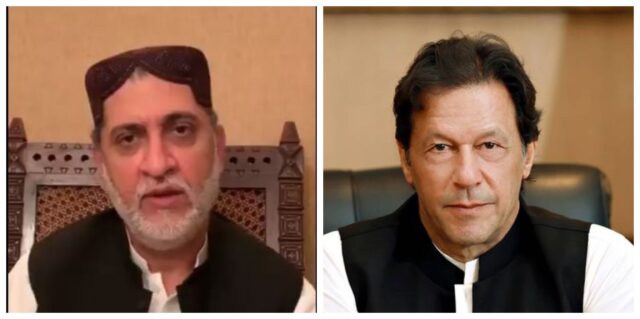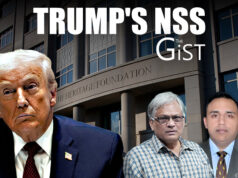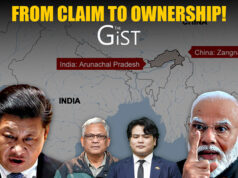“We are ready to face any kind of punishment, even death, if our demands are illegal and unconstitutional. But all other people who signed the agreements should also face the same punishment.” —Sardar Akhtar Mengal, president, Balochistan National Party-Mengal (BNP-M) in The Express Tribune
“[The government] is worried more about Kashmir than Balochistan. [The government] is constituting committees on Kashmir which is not with it but is not worried about losing what it already has. This House can discuss issues of wheat, sugar and tomatoes but not the blood of the Baloch people.”– Sardar Akhtar Mengal, president, Balochistan National Party-Mengal (BNP-M) in Dawn
NEW DELHI: The above was the prelude to Mengal’s announcement in the Pakistan National Assembly, withdrawing support to Imran Khan’s government. The Baloch feudal leader took pride in claiming it was the first time in Pakistan’s history that such an announcement was made on the floor of the House. Not that it mattered. Imran Khan’s coalition government is safe with 180 members, just eight more than a simple majority.
Hectic efforts to persuade Mengal to back off carried on till late over the weekend, giving rise to speculation that there was perhaps more to the withdrawal of support than unfulfilled Baloch grievances. In the two years since joining Imran Khan’s coalition, Mengal has threatened to quit only to back off. This time, the sense is a bigger political churn maybe under way, that Mengal is signalling the army’s growing impatience with its own creation, Imran Khan.
Pakistan scholar Sushant Sareen says that “Mengal made a Faustian bargain in 2018 when he backed the (Imran Khan) coalition. He maintained a nationalistic platform while also remaining in communication with the Pakistani deep state”.
As for the agreements his party signed with Imran Khan’s PTI, Sareen says “Everyone knew these agreements would not be implemented.”
One agreement pertained to missing persons, which frankly made no sense as it is well known that the Pakistani ‘deep state’ is behind it. The other agreement was to meet Mengal’s demand for the implementation of the National Action Plan to counter terrorism.
“None of this will lead to any change in the government so long as the army does not want it,” says Sareen, noting that the deep state is also faced with the dilemma of “who do we replace Imran with,” in a party built around a cult figure.
In a political scene where there are wheels within wheels, the army could be testing the political waters using Mengal. The latter may even be trying to read the army’s mind. Nobody knows for sure. They can only attempt to read the tea leaves.
There is also the larger question of Balochistan, Pakistan’s largest province, mineral rich yet poor and restive given a spreading insurgency driven by militant Baloch dissident groups. The province has also seen the rise of religious extremism with the Shia Hazara community the main target along with other non-Muslim and minority Muslim sects, according to the 2019 fact-finding report titled ‘Balochistan: Neglected Still’ prepared by the Human Rights Commission of Pakistan.
The report says, “There are also grave allegations of human rights violations by the state’s security agencies present in Balochistan. One of the most serious accusations against the agencies concerns their alleged role in enforced disappearances and the dumping of mutilated bodies of persons who have been ‘disappeared’.”
It also notes, “Over the years, the provincial governments and federal agencies have failed to hold any state functionaries accountable for their role in enforced disappearances and other such gross human rights violations in the province.”
Professional newshound, have navigated through typewriters, computers and mobile phones during my over three-decade-long career working in some of India's finest newsrooms (The Times of India, Financial Express). Pakistan, Nepal, Bangladesh and Bhutan are my focus, also Sri Lanka (when boss permits). Age and arthritis (that's a joke) have not dimmed the thrill of chasing a story. Loves music, animals and pasta.





